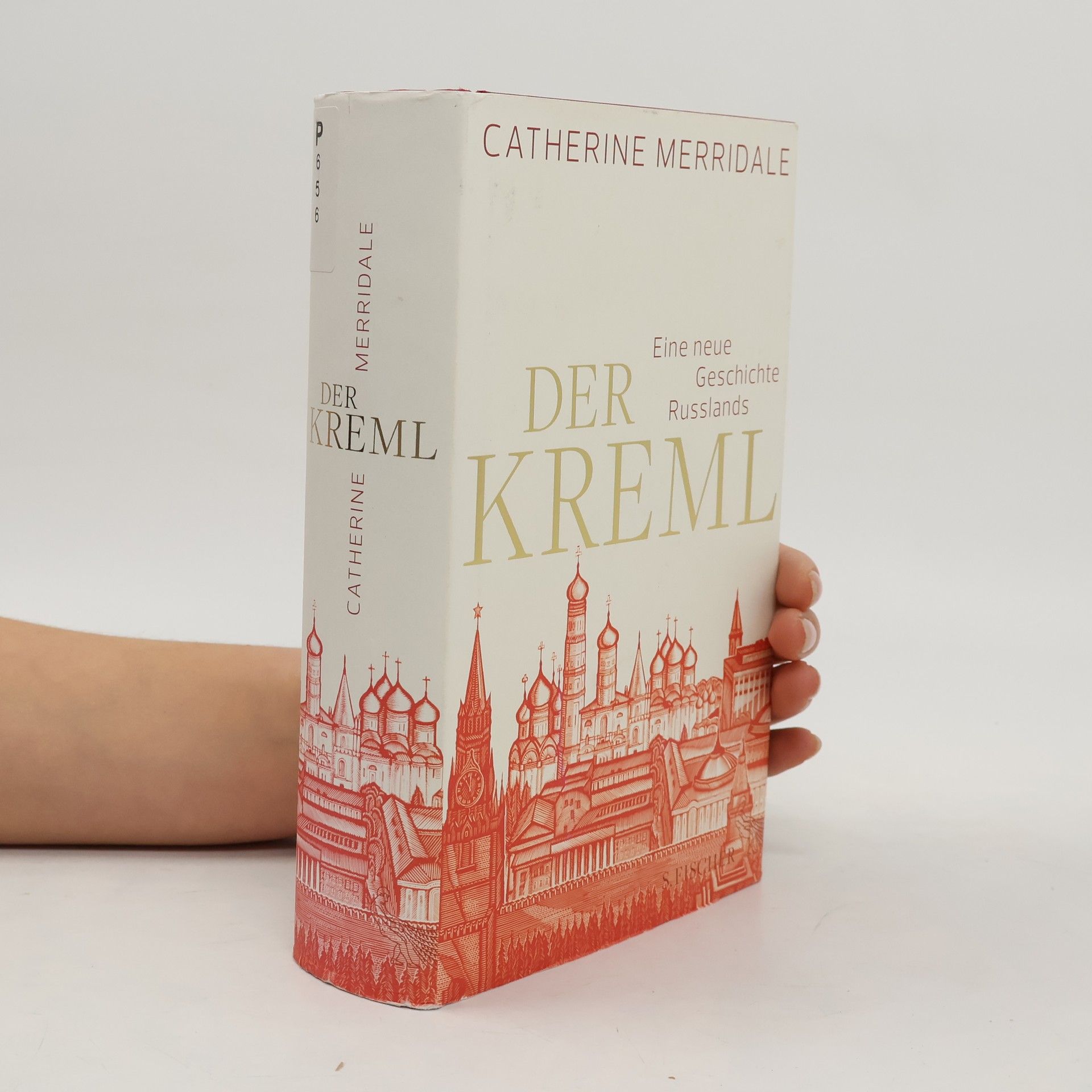WINNER OF THE WOLFSON PRIZE 2013HERALD BOOKS OF THE YEAR 2014The extraordinary story of the Kremlin - from prize-winning author and historian Catherine MerridaleBoth beautiful and profoundly menacing, the Kremlin has dominated Moscow for many centuries. Behind its great red walls and towers many of the most startling events in Russia's history have been acted out. It is both a real place and an imaginative idea; a shorthand for a certain kind of secretive power, but also the heart of a specific Russian authenticity. Catherine Merridale's exceptional book revels in both the drama of the Kremlin and its sheer unexpectedness: an impregnable fortress which has repeatedly been devastated, a symbol of all that is Russian substantially created by Italians. The many inhabitants of the Kremlin have continually reshaped it to accord with shifting ideological needs, with buildings conjured up or demolished to conform with the current ruler's social, spiritual, military or regal priorities. In the process, all have claimed to be the heirs of Russia's great historic destiny.
Catherine Merridale Livres


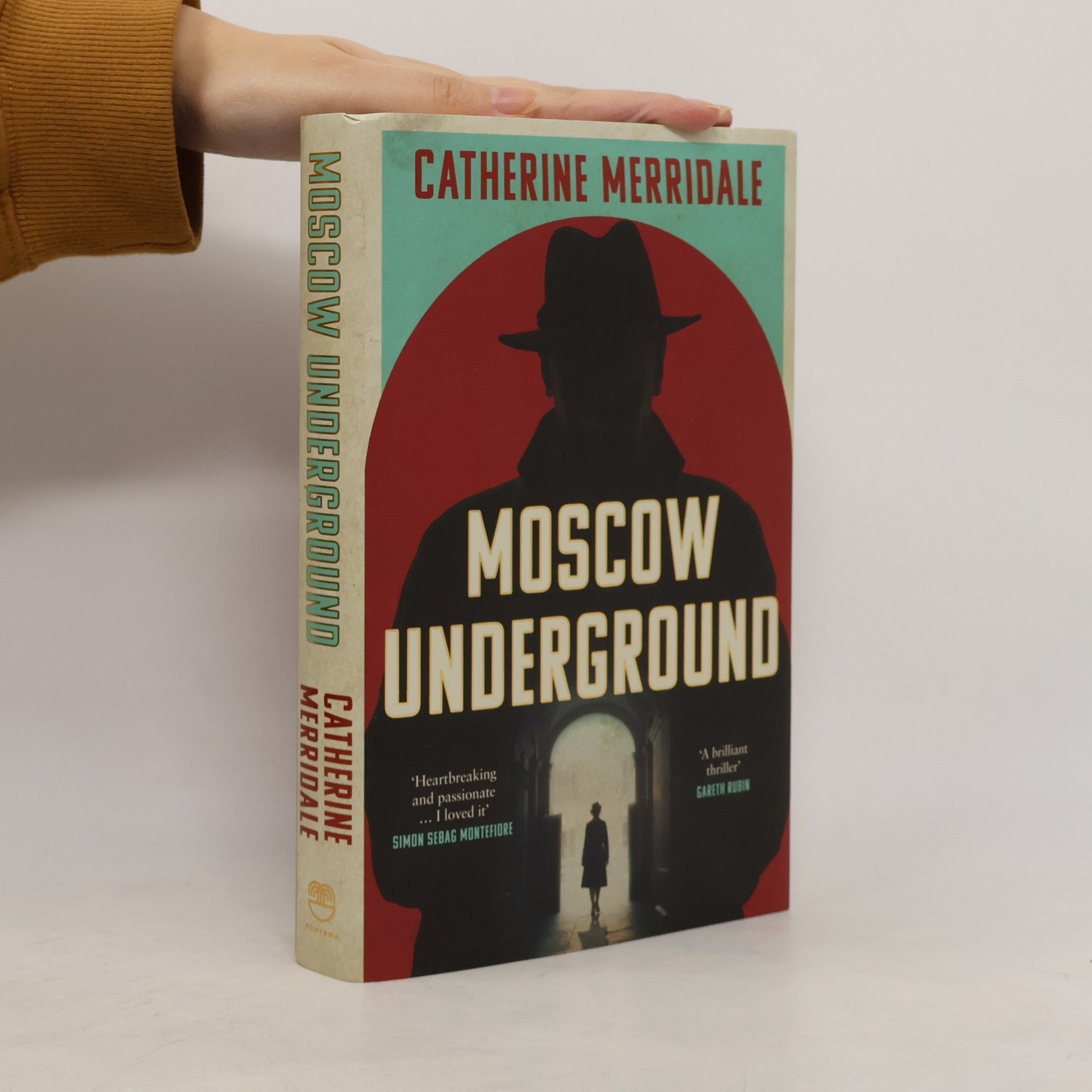
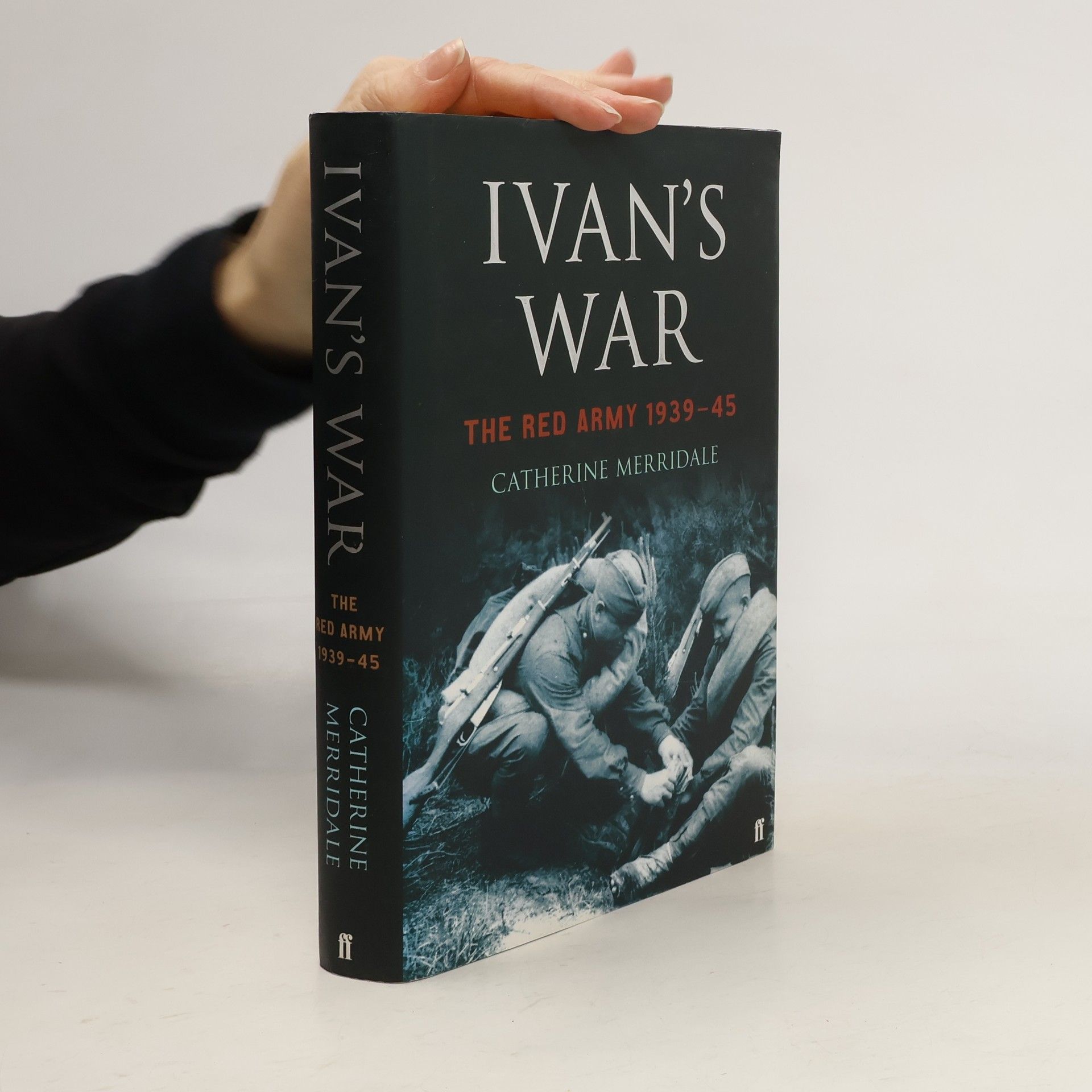
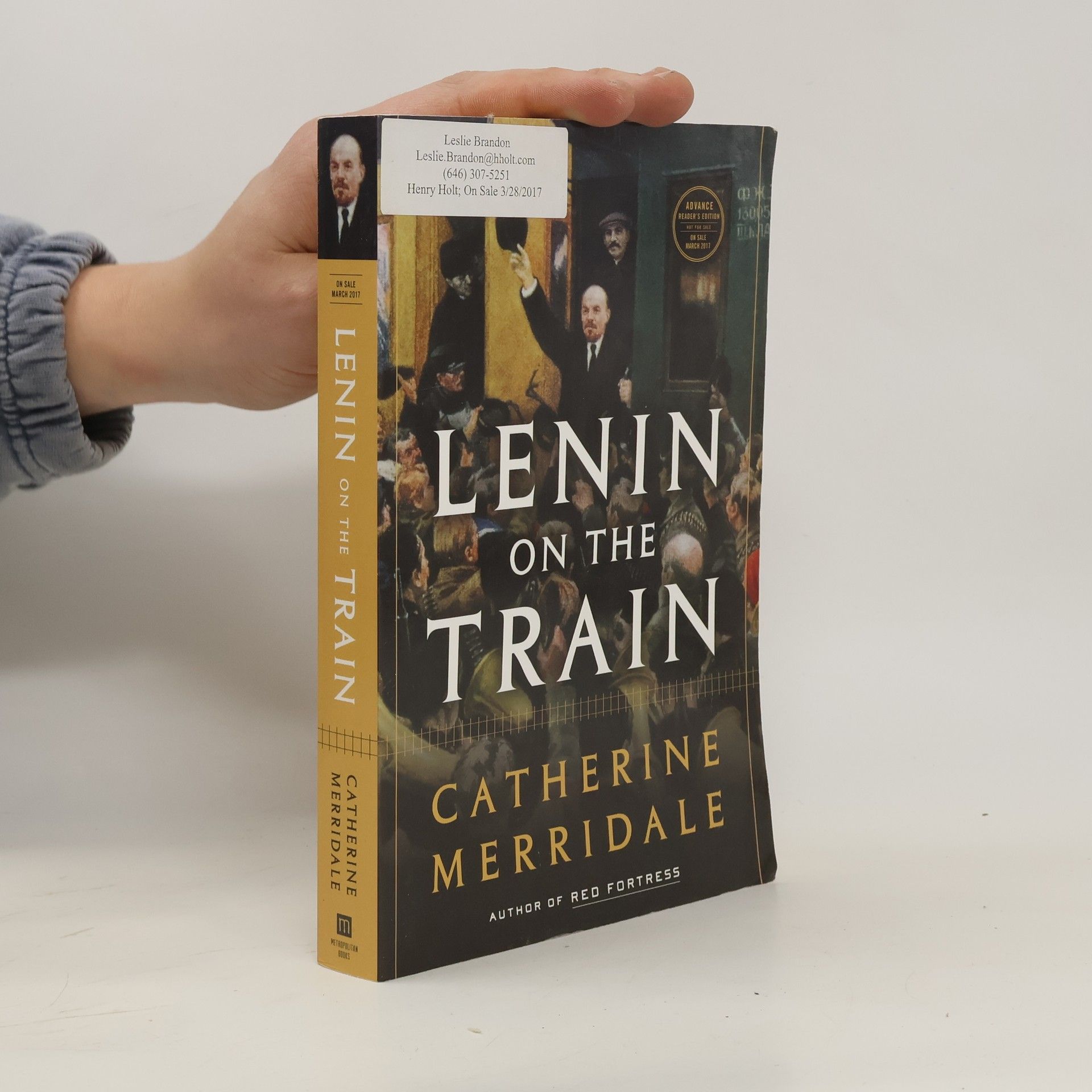
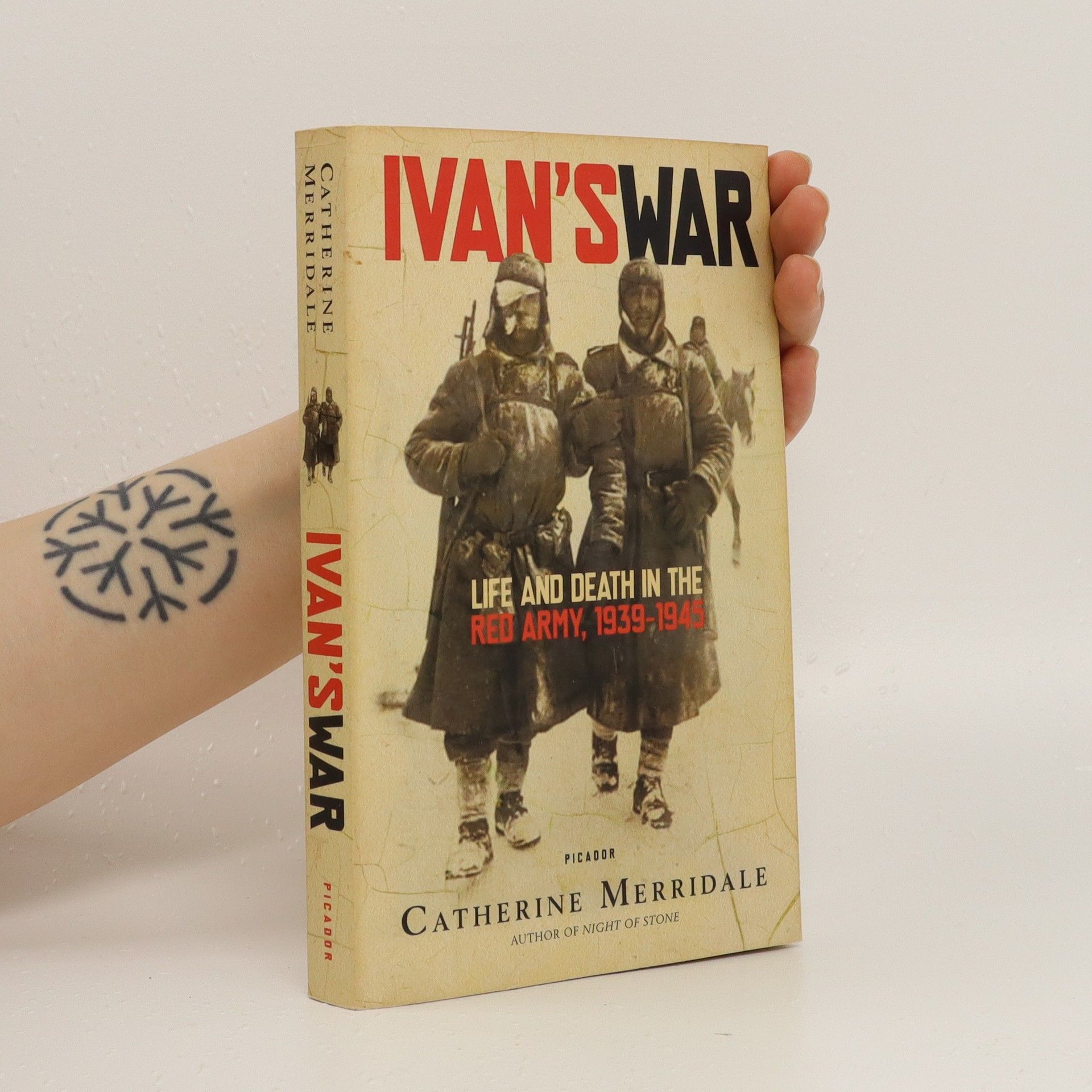
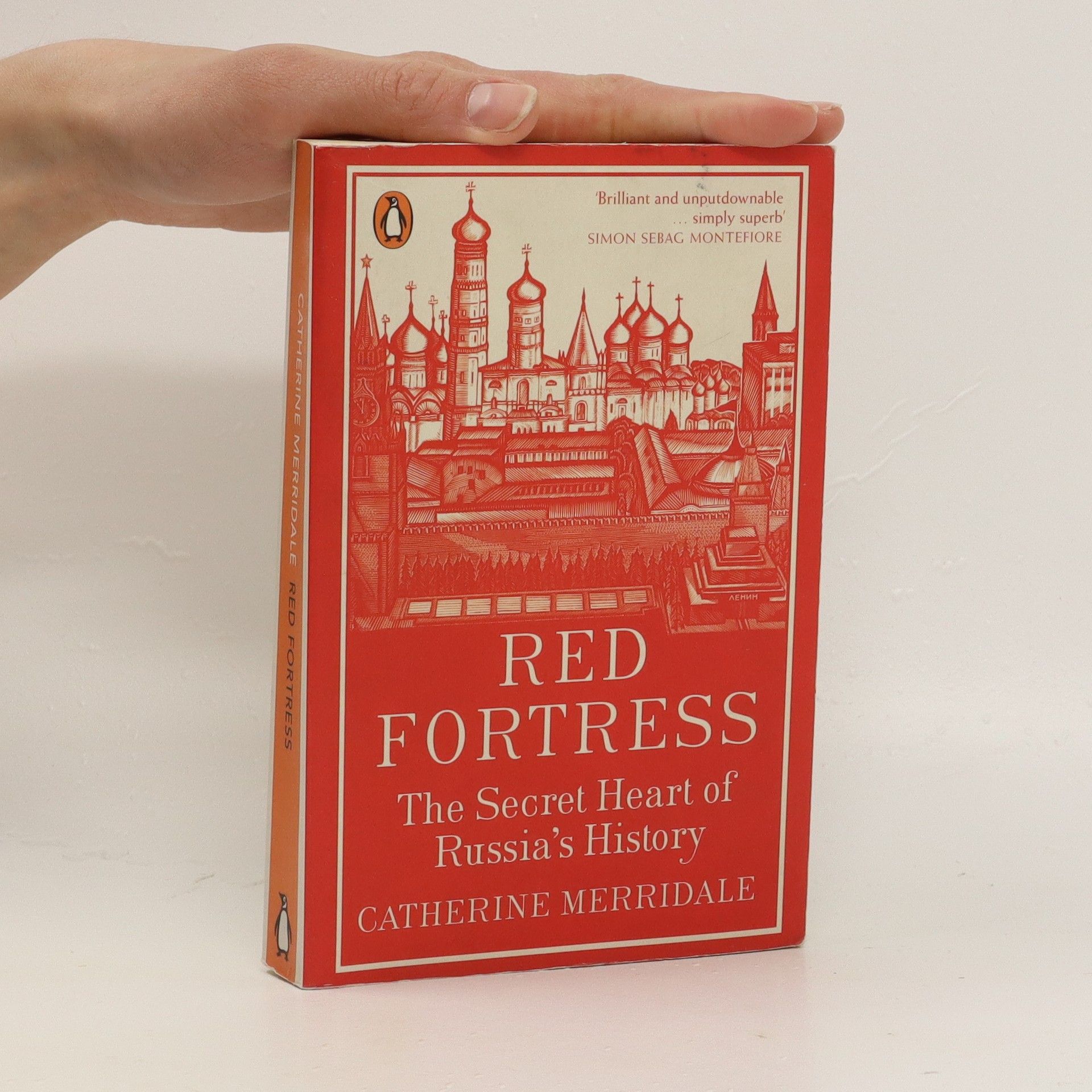
This powerful narrative explores the experiences of ordinary Russian soldiers during World War II, revealing the harsh realities of the eastern front. Out of thirty million who fought, eight million perished, facing relentless German assaults. These soldiers of the Red Army, often seen as a disorganized mass, ultimately triumphed over Europe's most formidable fighting force by 1945. Despite the passage of sixty years since their victory, the lives and perspectives of these soldiers remain largely unknown. While we understand how they died, little is known about how they lived, their worldview, or their motivations for fighting. Utilizing newly accessible military and secret police archives, interviews with veterans, and personal letters and diaries, the author provides a comprehensive history of the Soviet Army's rank and file. The narrative follows soldiers from the initial shock of the German invasion to the harrowing battle of Stalingrad, where survival was often fleeting. Through their eyes, we witness the complex emotions surrounding their arrival in Berlin and their hopeful yet disillusioning return home. This gripping history uncovers the blend of courage, patriotism, anger, and fear that enabled these underfed, poorly led troops to overcome the Nazi army, restoring the stories of the countless individuals who sacrificed everything for victory.
Lenin on the Train
- 353pages
- 13 heures de lecture
A gripping, meticulously researched account of Lenin's pivotal rail journey from Zurich to Petrograd, where he ignited the Russian Revolution and altered the course of history. In April 1917, following the abdication of Tsar Nicholas II, Lenin, then exiled in Zurich, resolved to return to Petrograd to lead the revolt. This journey required crossing Germany, necessitating assistance from one of Russia's fiercest adversaries. Germany saw a chance to destabilize Russia further by facilitating Lenin's return with a small group of revolutionaries. Renowned historian Catherine Merridale draws on a rich array of sources and previously unseen archival material to provide a nuanced narrative of this consequential journey—the train ride that changed the world. She explores the underground conspiracy and subterfuge that enabled it, revealing a world of counter-espionage, wartime desperation, illicit finance, and misguided utopianism. This moment marked the transformation of the Russian Revolution into a Soviet regime, laying the foundation for a system of tyranny and faith that would forever alter Russia's history and the global political landscape.
Based on archives of letters, diaries and police reports, 'Ivan's War' explores the human element of Russia's battle against German invasion, and the psychology that enabled a badly fed and badly run force to defeat a power that would otherwise have enslaved all of Europe.
Moscow Underground
- 336pages
- 12 heures de lecture
Moscow, 1934. The city's new subway is under construction, but the past looms large as Russia's leaders strive to build a glorious Soviet capital. Anton Belkin, an Investigator at the Procuracy, must navigate this treacherous landscape, especially as he has a complicated history tied to the revolutionary avant-garde through his artist father, whose dreams clash with Stalin's oppressive regime. When Anton is reluctantly pulled into the murder of a prominent archaeologist involved in the subway project, he finds himself in a perilous situation. His former lover, Vika, now a powerful member of the secret police, pressures him to visit the crime scene. Despite his reservations, Anton embarks on an investigation that risks his life. Deep underground, he uncovers a priceless secret that could reshape the future, entangling him in a brutal power struggle within the nascent Soviet state. As he delves deeper, Anton is compelled to confront his shared history with Vika and the complex ties that connect them. This sweeping narrative explores themes of life, death, and politics amid the shifting sands of Stalin's tyranny.
Zwycięstwo albo śmierć przedstawia Wielką Wojnę Ojczyźnianą z perspektywy zwykłego żołnierza Armii Czerwonej, który dla dowódców jest jedynie mięsem armatnim, a dla wrogów podludźmi. W początkowych tygodniach wojny niemiecka ofensywa wywołuje panikę i chaos, prowadząc wielu do ucieczki. Lasy wypełniają się dezerterami, a niemieccy żołnierze traktują swoich jeńców brutalnie. Stalin, wydając rozkaz nr 227, nie okazuje litości, a 158 tysięcy żołnierzy zostaje rozstrzelanych przez własnych towarzyszy za tchórzostwo. Ci, którzy przeżyją, mogą uwierzyć w stalinowską propagandę, a zabijanie faszystów staje się dla nich źródłem uciechy. Stalingrad, mimo ogromnych strat, daje nadzieję, że Hitlera można pokonać. Żołnierze stają się bezlitośni, mszcząc krzywdy, a wojna przekształca ich w bezwzględnych zabójców, gotowych na wszystko. Książka oparta jest na wywiadach z weteranami, pamiętnikach i odtajnionych materiałach archiwalnych, oferując unikalne spojrzenie na wojnę z perspektywy zwykłego żołnierza, ukazując wstrząsający obraz konfliktu, wolny od sowieckiej propagandy.
++++ Eine packende neue Geschichte Russlands – von Iwan dem Schrecklichen bis Wladimir Putin ++++Der Kreml ist das imposante Symbol der russischen Nation. Hier wurden die mächtigen Zaren gekrönt, hier paradierte die glorreiche Rote Armee nach dem Sieg über Deutschland. Im Kreml schlägt das Herz der russischen Macht, hier entscheidet sich Russlands Schicksal. Die bedeutende Historikerin Catherine Merridale erzählt die faszinierende Geschichte des Kreml mit all ihren Intrigen und blutigen Kämpfen um die Macht. Indem sie das verborgene Innere des russischen Staates freilegt, ermöglicht sie uns ein neues Verständnis der bewegten Geschichte Russlands bis in die Gegenwart.
Das 20. Jahrhundert war für Russland und die ehemaligen Sowjetrepubliken von einer beispiellosen Häufung von Tod und Vernichtung geprägt. Zwei Weltkriege, die Oktoberrevolution, Säuberungen und Hungersnöte führten dazu, dass Russland traurigerweise das Land mit den meisten gewaltsam zu Tode gekommenen Menschen wurde. Die russische Erde ist voll von Toten – Soldaten, Partisanen, Verfolgten und Opfern der großen Säuberungen unter Stalin, die oft anonym in Massengräbern beigesetzt wurden. Jahrhunderte lang waren die Russen der Willkür der zaristischen Obrigkeit ausgeliefert und entwickelten eine fatalistische Beziehung zum Tod, akzeptierten frühe und gewaltsame Todesarten als unausweichlich. Der Tod wurde als Teil des Lebens angesehen, und das Trauern fand nur im familiären Rahmen statt, während öffentliche Trauer verboten war. Catherine Merridale analysiert in ihrem Werk die Gräuel dieser Zeit und stellt zentrale Fragen: Wie bewältigte die Nation ihre enormen Verluste? Wie konnte eine ganze Gesellschaft trauern, ohne dies auszudrücken? Die Autorin beleuchtet auch die orthodoxen Gottesdienste, die den Menschen Halt gaben, und die gescheiterten Versuche der Bolschewisten, atheistische Alternativen zu schaffen. Erst seit der Ära der Glasnost verändert sich der Umgang mit der schmerzlichen Vergangenheit, und Familien können nun nach ihren ermordeten Angehörigen suchen, um ihnen eine würdige Bestattung zu ermöglichen.
Het Kremlin. Een nieuwe geschiedenis van Rusland
- 528pages
- 19 heures de lecture
Het Kremlin, zowel indrukwekkend als bedreigend, domineert al sinds eeuwen het stadsbeeld van Moskou en is alweer lange tijd het politieke en symbolische hart van Rusland. Dit is het verhaal van een orthodox-religieuze locatie, een schuilplaats van tirannen, een weelderig paleis, het hol van de bolsjewieken en het onderkomen van beroemde en beruchte leiders, van tsaar Ivan de Verschrikkelijke tot Vladimir Poetin. Een compleet boek over een van de grootste iconische gebouwen ter wereld. ‘In deze fascinerende geschiedenis laat Catherine Merridale zien hoe al eeuwenlang wordt geprobeerd te verhullen wat er werkelijk binnen de muren van dat geheimzinnige fort is gebeurd.’ NRC Handelsblad ‘Catherine Merridale is een geweldige historicus, een van de allerbeste van haar generatie.’ Tony Judt
